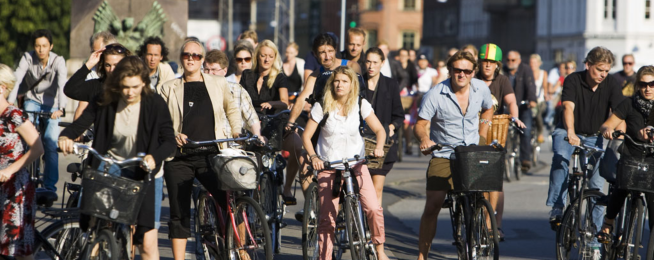A study of a huge group of riders in Denmark has provided powerful proof that people who ride bikes live longer than those that choose not to.
The prospective cohort study followed 28,204 commuter, and 15,272 recreational riders between 50 and 65 years old for at 5 years.
The participants provided information on their riding habits and risk factors for mortality at baseline, and five years later, and were followed for risk of death for up to 10 years.
“Commuter cycling and recreational cycling between 1 and 60 minutes per week were associated with a statistically significantly lower all-cause mortality compared with no cycling,” the study, published in the American Journal of Preventative Medicine, reported.
"Secondly, initiation of cycling and consistent cycling was associated with approximately 20% lower risk of all-cause mortality compared with no cycling and theoretically, 9% of all deaths could have been prevented during the study period if all non-cycling participants had either started cycling or cycled consistently."
The study found that non-cyclists smoked more, were generally less physically active, had lower educational level, and were less occupationally active compared with cyclists.
"With a global ageing population, it is particularly noteworthy that the investigations of changes in exposure to cycling included participants at a relatively old age, emphasising longevity benefit even if people in late adulthood start cycling habitually,” the study says.
"The prevalence of cycling varies widely internationally, possibly attributable to the combined impact of infrastructural, traffic, demographic, cultural, and personal factors.
"From a public health perspective, targeting these factors to encourage more people to cycle appears especially relevant in nations with low cycling prevalence.”
The researchers conclude: "To prevent premature mortality, it may be suggested that national and local governments prioritise resources to promote cycling.”
Become our friend
Find out more about Bicycle Network and support us in making it easier for people to ride bikes.


